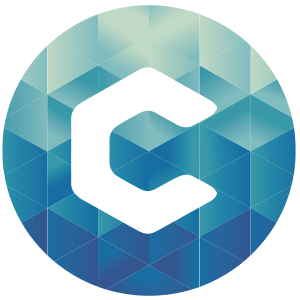Medical Resources
Forensic Exam
What is it?
The Sexual Assault Forensic Exam, also called a ‘rape kit’, is an exam that checks for and documents physical evidence of sexual battery, sexual assault, or rape, and may be conducted up to 5 days after the incident. To best preserve evidence, one should not bathe, shower, brush teeth, or go to the bathroom until after the forensic exam. Evidence from a forensic exam can be used in prosecuting sexual assault cases through the criminal justice system.
Where can I get a forensic exam?
Santa Clara Valley Medical Center
A victim advocate from the YWCA can support in the forensic evidence collection process & provide confidential & anonymous services throughout the medical, legal, & administrative procedures.
Contact: 408-885-5000
Sexual Assault Response Team (SART): 408-885-6466
How does it work?
At Santa Clara Valley Medical Center, the Rapid Medical Evaluation (RME) Unit is a four-bed treatment area within the Emergency Department. Our emergency physicians and other medical professionals quickly evaluate patients with urgent medical problems. The RME Unit is open from 8 am to 4 am every day. The Sexual Assault Response Team (SART) provides medical and forensic response to victims of sexual assault, 12 years and older, who come into our Emergency Department, 24 hours a day. There are approximately 20 specially trained registered nurses who serve as SART Nurse Examiners. The SART Nurse Examiners respond to patients who come to the SCVMC Emergency Department. The SART Nurse Examiner provides medical evaluation and treatment, collects evidence for forensic purposes, and will testify in court as necessary. Dr. James B. Lane is the Medical Director of the SART Program.
Will the police be notified that I got a forensic exam?
The police will be notified, but you are not required to speak to them or disclose any identifying information. You can let the SART Nurse Examiner know that you would like to request anonymity, and the police will not come to the hospital or receive your name.
How are forensic exams used?
After the exam, the Nurse Examiner will document the findings in a medical record, which can later be subpoenaed to assist in the legal process.
Do I need to pay for it?
Forensic exams are paid for by the local jurisdiction (through California Victim's Services), not by you. If you receive additional medical assessments or treatments, you may need to pay for them personally or through insurance.
Can I have someone with me?
You can have a support person (or people) of your choice such as a friend, family member, or advocate accompany you throughout the medical care process. You can also call the YWCA at 1-800-572-2782 to speak with someone confidentially and request someone to accompany you to receive medical care.
Back to topMedical Centers
Vaden Health Center
Appointments: 650-498-2336, ext. 1
Urgent advice: 650-617-2576
Emergency Department, Stanford HealthCare
Contact: 650-723-5111
Santa Clara Valley Medical Center
Survivors can receive a forensic exam a this location. A victim advocate from the YWCA can support in the forensic evidence collection process & provide confidential & anonymous services throughout the medical, legal, & administrative procedures.
Contact: 408-885-5000
Sexual Assault Response Team (SART): 408-885-6466
Medical Treatment
After an experience of unwanted sexual contact, you may consider seeking medical treatment, such as:
- STI treatment and testing and/or discussing the risks of sexually transmitted infections (STIs) with a health professional
- Preventive treatment for certain STIs can be most effective within 1-3 days of the sexual contact
- Find more information about post-exposure prophylaxis (preventative treatment for HIV) such as where to find it and how to pay for it
- Forensic exam to collect potential physical evidence and determine additional necessary treatment (also called a sexual assault forensic exam, or ‘rape kit’)
- A forensic exam may be conducted up to 5 days after the incident
- To preserve evidence one should not shower, bathe, brush teeth, or change clothes before visiting a hospital for a forensic exam
- Learn more about the Forensic Exam
- Discussing the risks of pregnancy resulting from a sexual assault and/or contraception methods and alternatives with a health professional
- Preventive treatment for pregnancy can be most effective within 1 day of the sexual contact
- Find places to obtain preventive treatment near you
You can have a support person or people of your choice such as a friend, family member, or advocate accompany you throughout the medical care process. You can also contact the Office of Sexual Assault & Relationship Abuse Education & Response (SARA) at (650) 725-1056 or [email protected].
Back to top
